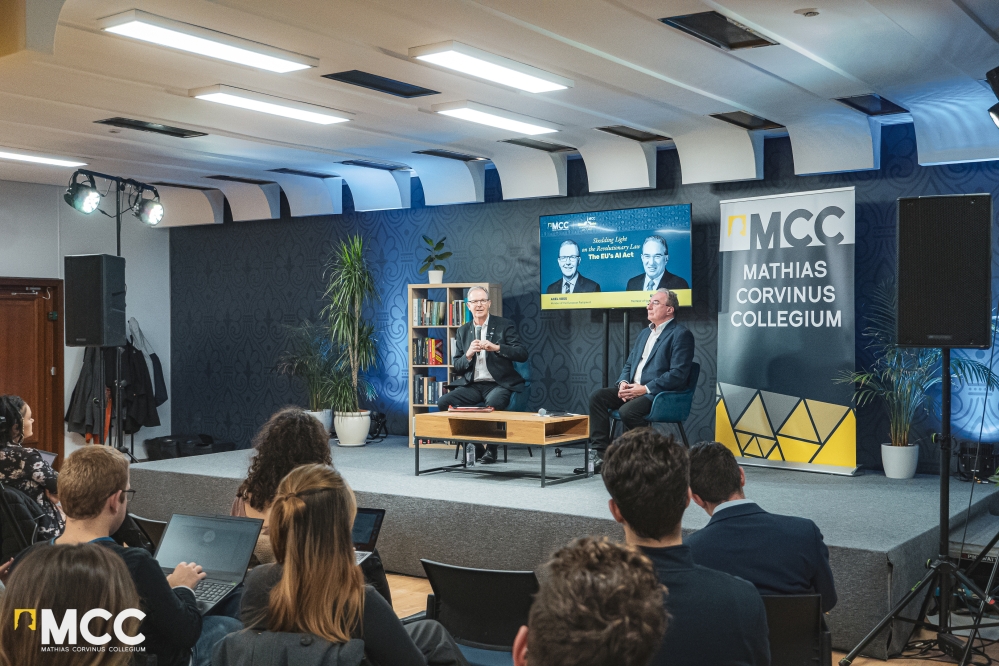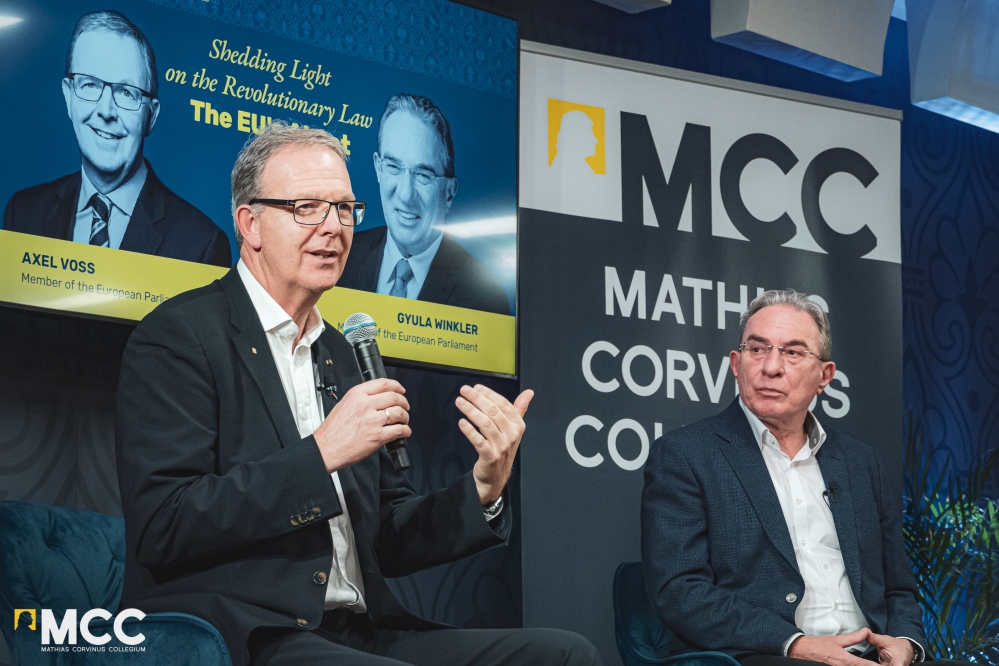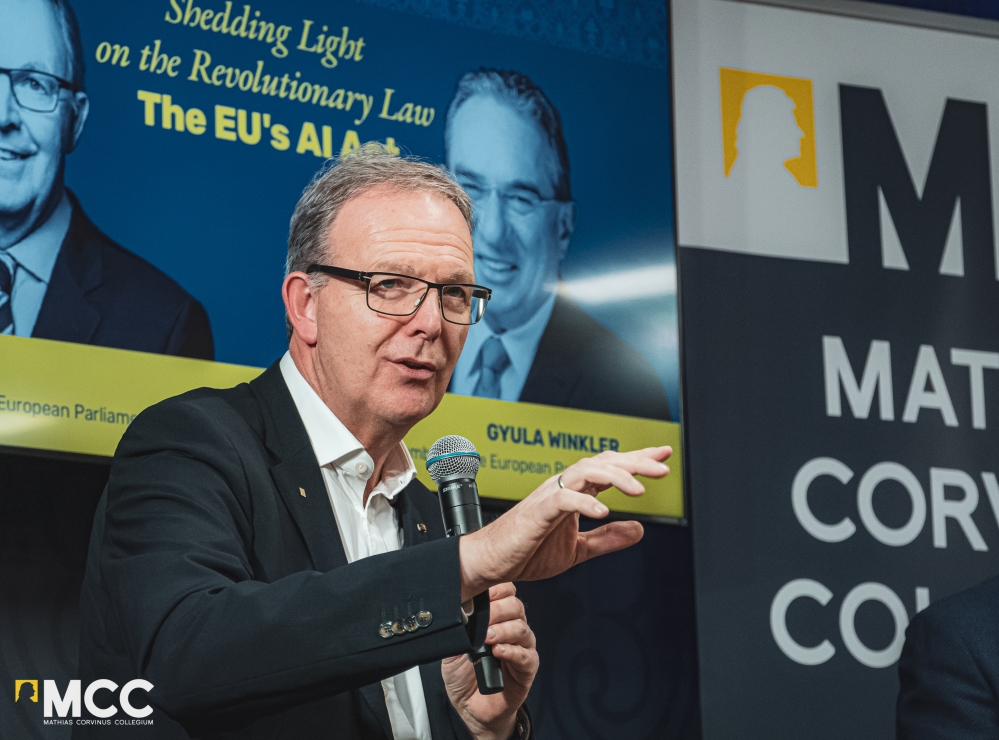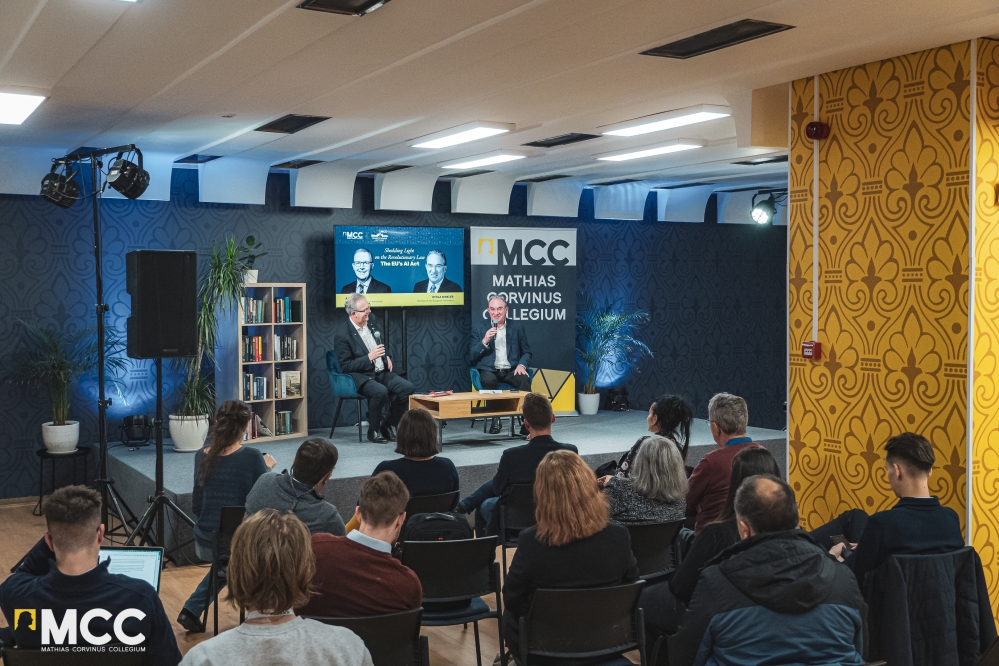Reading time: 4 minutes
Rather than fearing artificial intelligence, let’s recognise its potentials and regulate this new technology in a way that doesn’t stand in the way of progress – said Axel Voss, member of the European Parliament at the November 13th edition of the Mathias Corvinus Collegium (MCC) Transylvania Lectures, where he discussed artificial intelligence and its regulations with fellow EP member, Gyula Winkler.
The main topic of the discussion was the EU’s new AI Act. The European Council looks over and modifies the initiative, then – after it comes to an agreement with the Parliament –, a law can be drafted, which is then published in the Official Journal of the European Union. „The procedure is much more complex than that. Within the European Parliament seven different groups need to review and agree on the draft, only then can it be approved, says Axel Voss.
The European Parliament has been trying to create the first comprehensive AI regulation for the past two and a half years. The first step was to work on a definition of AI which is in accordance with the international consensus. In case the source code is accessible and modifiable by anyone, it is important to determine the scope of just how much say people can have when modifying these programmes, and wat responsibilities come with doing so, and to be precise and careful with the wording and the vocabulary as well.
The drafting of the act also has to be considered through military, health, national security, digital and energetical standpoints. For example, it was a point of contempt whether the police should or shouldn’t use face recognition technology in order to prevent crime, or whether it would be ethical for healthcare professionals to use technologies that can recognise human emotions in order to diagnose the patient quicker. „Since the technology can be used for malicious intent, all fields have their positives and negatives, this is why we always have to take into account the high risk of the situation”, says the lawyer.
Axel Voss pointed out the biggest paradox that comes up when drafting this law: the question of the General Data Protection Regulation (GDPR) and copyright. In order to create impartial, egalitarian and realistic algorithms, developers need a tremendous amount of data. According to the regulation, users’ data can only be used with their explicit permission – problem is, research shows that only around 10% of people consent to their personal data being used. To deal with this, companies have created sandboxes, where they can measure their marketability, using even the most minimal of data.
Copyright protection is closely connected to basic human rights, freedom of speech and independent media. According to Voss, ignoring copyright would be a great loss, and we don’t know exactly what consequences it would lead to. “Mijac Music could input Michael Jackson’s music in a way that his next song could be sung by AI”, added Gyula Winkler.
We still have a long way to go until the implementation of the first AI regulations. The talks between institutions haven’t come to an end yet, furthermore, the 2024 European Parliament elections may disturb the current numbers. “The process is being delayed, because we don’t want to fall into the same mistake as we did when drafting the GDPR regulations. We don’t want a fragmented market and we want to avoid having different rules in every country”, explained the expert. Axel Voss hopes that the process can be sped up and we can create a system that is braver and is able to keep up with digital advancements – legislations should be drafted in three months, they shouldn’t take years.
The participants agreed that the economy will not be affected by the postponement of the regulation. However, they believe that the opportunities will be lost if we do not enter the digitalisation arena in a competitive way as soon as possible. Axel Voss stressed, “If we ignore the technological revolution, we are just wasting what we have”. The discussion concluded with the idea that the future is inevitable and we should not hide from it. When the internet came along, our predecessors faced similar concerns as we do now with ChatGPT. It is possible that this platform will become the primary forum for information gathering and research for the next generation.



